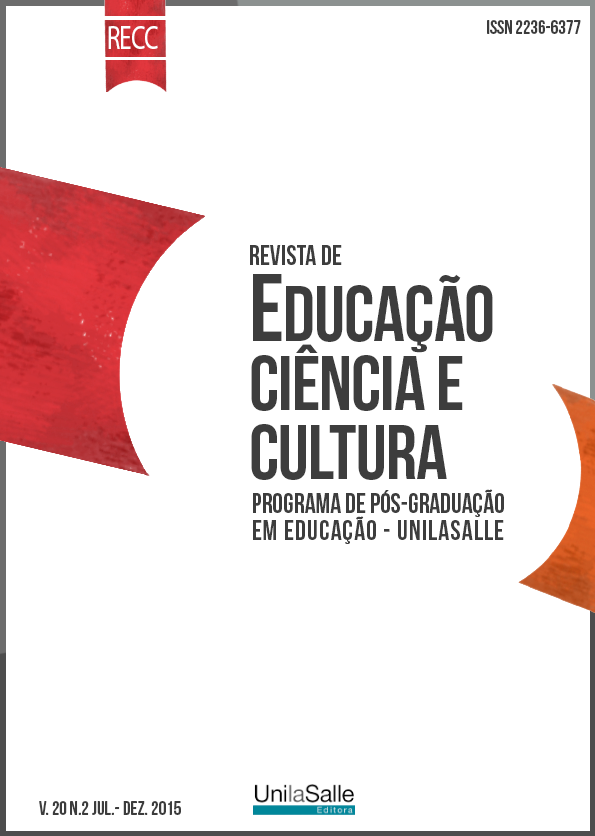Policies and practices for integration of history and African-Brazilian culture in elementary education: the law 11645/08
DOI:
https://doi.org/10.18316/2236-6377.15.14Keywords:
African-Brazilian Culture, Educational Policies, Educational Practices, Law 10.639/03.Abstract
The law 11.645/08 provides the integration of history and African-Brazilian culture in curricular structure of elementary education. This study aims to examine how the application is occurring in three municipal schools  in the metropolitan area of Porto Alegre. Thus, from oral interviews, it examines the policies put in motion and the practices undertaken in the context of elementary education. It uses a method of analysis of oral sources, advocating the importance of memory as a key element in the research with this type of action. The work directed their attention to the construction of educational alternatives that enforce the implementation of the law within the daily actions of the school. Points to the teachers, despite the fragility of the training processes, as the main protagonists, along with a network of partnerships that own relations articulated in school units, with the entities of the black movement and university institutions. As a historical basis to draw pictures of black people that substantiate the possibilities of study offered by the Law, is the imaginary Quilombola, expression of struggle and resistance to slavery, as opposed to the figure of the submissive slave.
Downloads
Published
Issue
Section
License
Authors must submit their manuscripts to be published in this journal agree with the following terms:Authors maintain the copy rights and concede to the journal the right of first publication, with the paper simultaneously licensed under the License Creative Commons attribution that permits the sharing of the paper with recognition of authorship and initial publication in this journal.
Since the articles are presented in this journal of public access, they are of free use, with their own attributions for educational and non-commercial purposes.
The Periodic Journal of Education, Science and Culture in http://www.revistas.unilasalle.edu.br/index.php/Educacao was licensed with a Creative Commons - Attribution - Noncommercial 3.0 Not Adapted.


